3D printing has become both more accessible and more affordable in the last few years, thanks to notable brands releasing machines like the Elegoo Mars 2 Pro that are capable of printing quickly, without sacrificing quality. This is great for folks at home looking to create small figurines for tabletop or board games, or perhaps creatives who want to prototype something created in a 3D sculpting or CAD application.
The Mars 2 Pro name suggests the existence of an original Mars 2 printer – and there is, with the Elegoo Mars 2 available for around $200/£215, though you get a few key upgrades from that model that are, in our opinion, absolutely worth the additional expense.
For one, you’re getting a metal resin vat rather than the replaceable plastic version, as well as a slightly larger build platform to squeeze in larger models. There’s even an air filtration system built into the Pro model, and a rubber seal to keep the red acrylic hood firmly in place while the filter is running, though it lacks a network connection as seen on the larger Elegoo Saturn.
The biggest issue you’ll likely have with the Mars 2 Pro is its small build plate, but if we skip back a few years, almost every resin-based 3D printer was around this size. You can get around its restrictions by using slicing software like Chitubox to ‘cut’ a large model into sections and print them in batches. However, this is a printer best suited for small, complete models, making it ideal for tabletop RPG or wargame hobbyists who want to save money on Warhammer 40K by printing alternative models, as well as those specializing in small prototypes like jewelers or cosplayers.
Elegoo Mars 2 Pro review: Design & set up
The Elegoo Mars 2 Pro looks remarkably similar to other resin printers within the Elegoo family, featuring a black metal base and a red acrylic cover that prevents UV light from shining through onto the resin vat. The parts are well built and, thankfully, you won’t have to do much assembly yourself as the printer comes almost completely set up in the box – just follow the instructions provided and you can go from a sealed box to printing your first model in around 20 minutes.
Elegoo has also provided a mini tool kit that contains everything you need to jump right into printing, such as a metal scraper for removing prints from the build plate, a plastic scraper for removing any failed prints that adhered to the delicate FEP film (using the metal scraper can easily shred this), Allen keys to level the build plate, a USB stick to load STL files onto, and even replacement FEP sheets in case you pierce through the one already installed – something that wasn’t included in the Elegoo Saturn’s tool kit.
You also get some safety kit in the form of latex gloves and disposable facemasks, but we would recommend buying yourself a box of nitrile gloves and an N95 respirator that’s graded for fumes as liquid resin can be toxic to work with.
The USB port is located on the front of the machine, just underneath the 3.5-inch color touchscreen LCD, which is much easier to access than other printers that place the USB port on the side or even the rear of the printer. This way you can quickly load new files in without moving the Mars 2 Pro around. The touch-operated display is very responsive and easy to use, with multiple language options available and clear instructions that will guide you through the process of printing, cleaning your resin tank, and leveling.
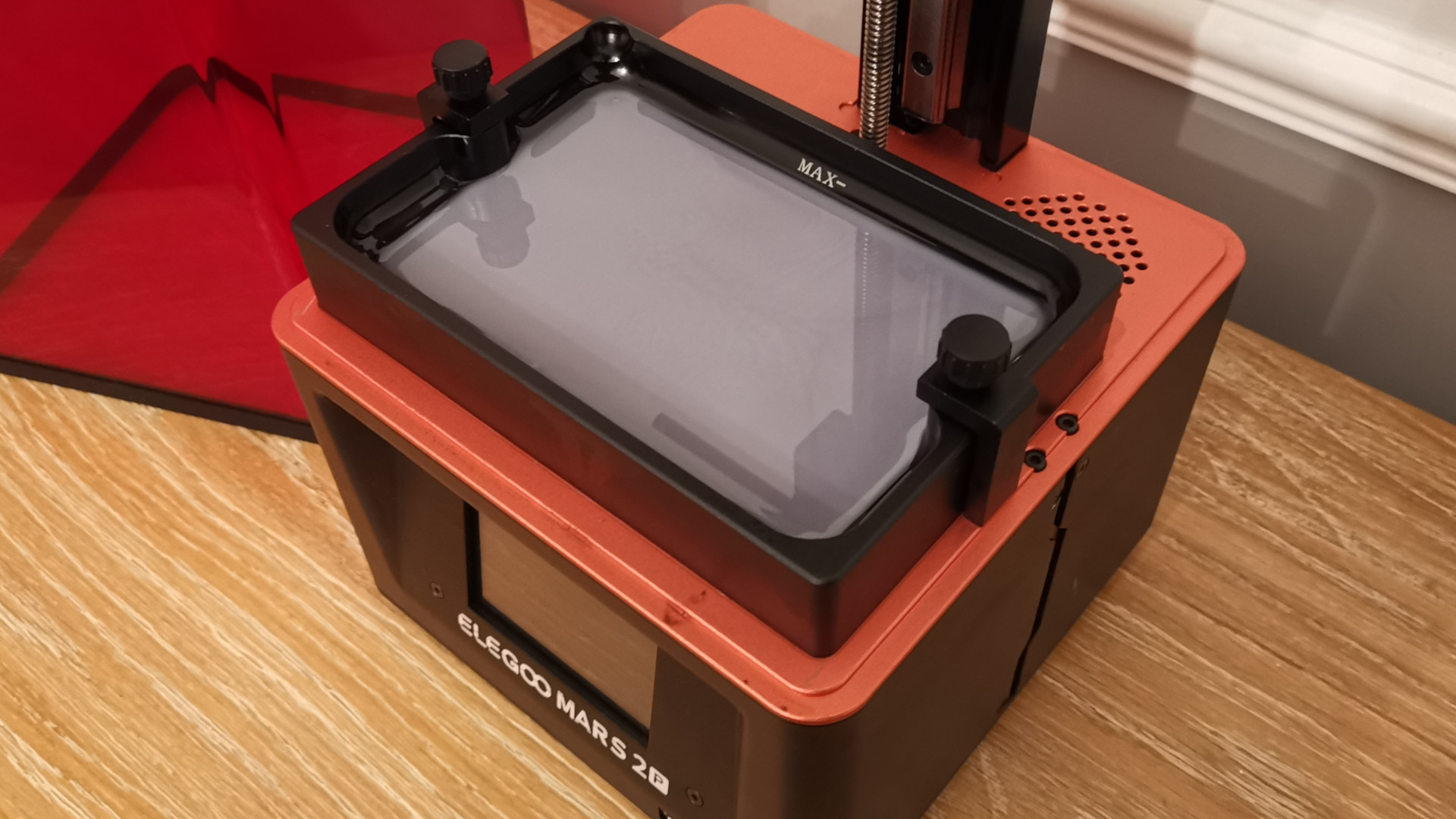
The USB drive provided is pre-loaded with instructions on how to safely level the printer and how to set up the accompanying slicing software Chitubox. While it might take some practice to actually master printing and creating 3D models of your own, the Mars 2 Pro does set you up to start learning with minimal fuss or confusion.
The size of the build plate will dictate the size of your prints and the build volume – so due to the size of the Elegoo Mars 2 Pro, prints of multiple, smaller models would be best. The Elegoo Mars 2 Pro is on the smaller size, but as previously stated, this isn’t uncommon for resin-based printers as the build plate has to be fully submerged in resin, and larger printers need to accommodate much larger resin tanks which makes them better suited for workshops than a home environment. Most folk will be fine with the size of the Mars 2 Pro, but there are larger offerings like the Elegoo Saturn or even the Elegoo Jupiter if you need to print some truly massive figurines.
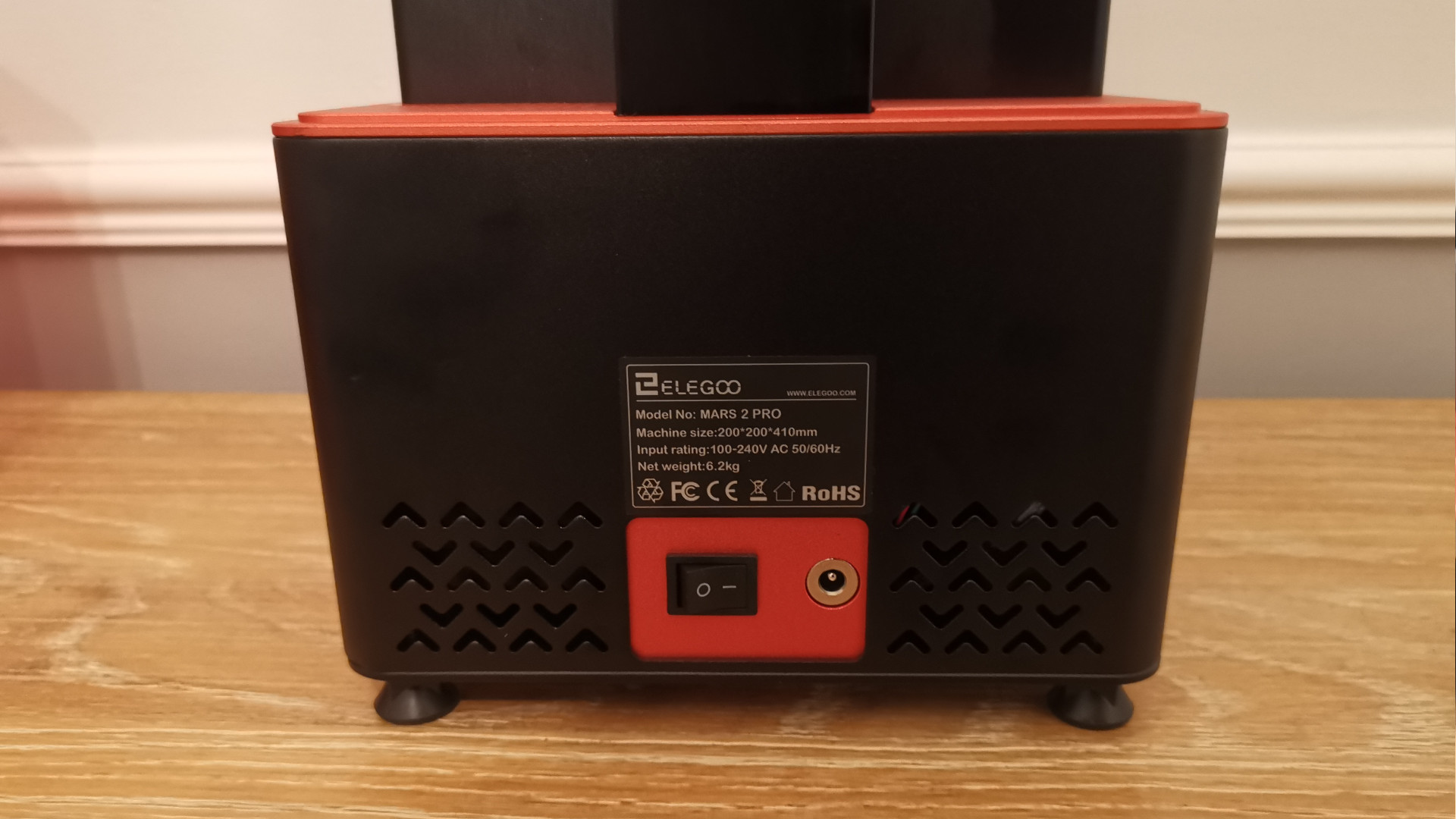
We do have some criticisms though, mainly with how the resin tank is mounted. It’s a definite upgrade from the plastic style used in the original Mars 2 as this is constructed from solid metal, but you need to slide this into position from the side, rather than simply placing it down and fixing it into place. Not only does this risk scratching that delicate FEP sheet on the bottom of the tank, but the friction can also make the tank stick to the surface of the display, risking a resin spillage when you remove it.
The rubber seal also proved to be a nuisance. It does a fine job at keeping the seal tight for the air filter, but it’s not adhered to the acrylic hood in any way, and so flops off frequently when removing it. On one occasion, this dipped into the resin tank, so it would have been better for this to be fixed into position rather than loosely stretched around.
Elegoo Mars 2 Pro review: Specs & features
The Elegoo Mars 2 Pro is equipped with a 6.08-inch masking LCD and a print resolution of 1620 x 2560 pixels, which works out to be an XY print resolution of .05mm, or 50 microns. This is actually larger than both the original Elegoo Mars and Mars Pro printers which are capable of 47 microns, but you’ll never see the difference without placing two identical prints under a magnifying glass.
That said, the Mars 2 Pro is capable of printing much faster than its predecessors thanks to the inclusion of a powerful UV lamp in place of the LED matrix that featured in the previous Mars Pro. So, we wouldn’t count the resolution as a downgrade and instead view it as an agreeable trade-off.
Elegoo Mars 2 Pro specs
Operation: 3.5 inch touch screen
Software: Chitubox
Connectivity: USB
Technology: LCD-based SLA UV Photocuring (405nm)
XY res.: 50 Microns (2560 x 1620 pixels)
Z axis res.: 0.00125mm
Layer res.: 0.01-0.2mm
Printing speed: 30-50mm/h
Printer size: 200mm x 200mm x 410mm
Build volume: 129mm x 80mm x 160mm
Material: UV Resin
Net weight: 6.2kg
What is a downgrade though, is that this newer style of display lacks a protective glass layer like those seen in older Mars models, instead simply being taped into the machine. There are multiple clear instructions to not remove this tape during setup, but it still doesn’t have a very professional feel to it.
You get a few simple but appreciated ‘quality-of-life’ features, such as a clear ‘Max Fill’ line marked on the resin tank to avoid it overflowing during use and a slight ‘spout’ on one corner to help with pouring the unused resin back into the bottle for a later date.
We’re also unsure if it’s the air filter or the cooling fans, but the Mars 2 Pro is a very noisy printer. If you’re behind a closed door then most of the noise will be blocked off, but if you’re in the room where it’s operating you may find the loud fans to be a nuisance.
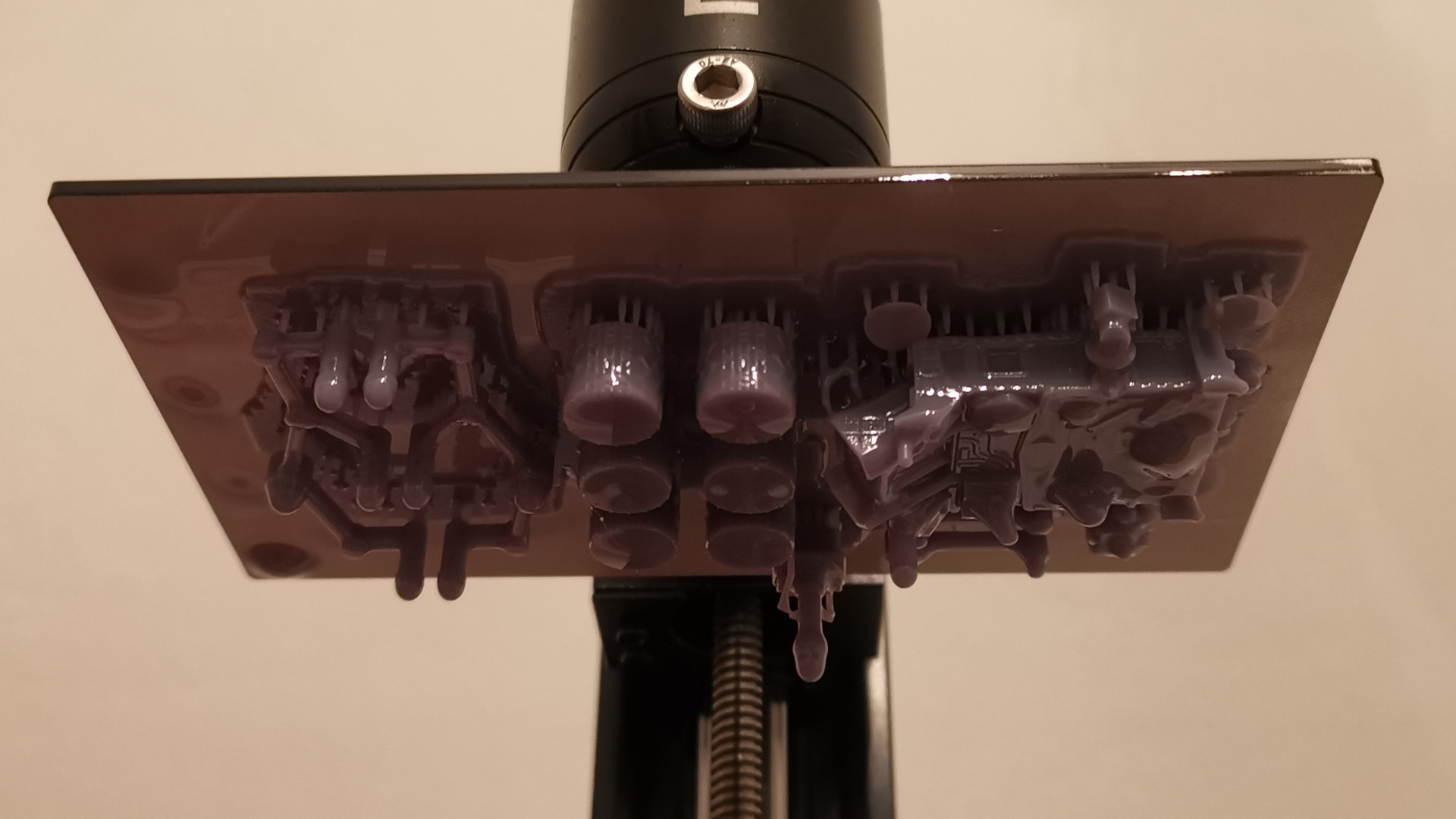
An accessory is also supplied that can be used to hang the entire build plate at an angle to allow excess resin to drip off before you wash the prints and give them a final cure, and this is also compatible with other lines like the Elegoo Mercury Plus, a 2-in-1 wash and cure machine. This is an additional expense, and not a required one as you can wash your prints in a bowl of Isopropynol and then simply cure for several hours in sunlight. With that being said, investing in one will massively speed up the process of finishing your prints.
Elegoo Mars 2 Pro review: Print quality & speed
Chitubox is the slicing software of choice for the Elegoo Mars 2 Pro, and you’ll find the installer already downloaded onto the supplied USB drive (though this is also easily found online for free). The printer profiles are already supported on the software too, so you can just select the Mars 2 Pro printer from the dropdown list of available machines and then start setting up your files.
We would suggest you avoid using the test file supplied on the same drive as this is placed directly onto the build plate and the result is almost impossible to remove without brute force, which risks damaging both the print and the printer. Instead, you can try jumping right in with a pre-supported model or try a purpose-made benchmarking file like this cube from UncleJessy.
The small build size isn’t ideal for large models, but for tabletop miniatures this is ideal and even the smallest details are easily picked up. This Mandalorian model from Printed Obsession was scaled down from its original 30cm height to something not much larger than a Warhammer figurine and yet you can still see every small detail, from the wrinkles on his clothing to the bolts along his blaster. The print took just under 4 hours to finish printing, which is much faster than an FDM printer and with much greater attention to detail.
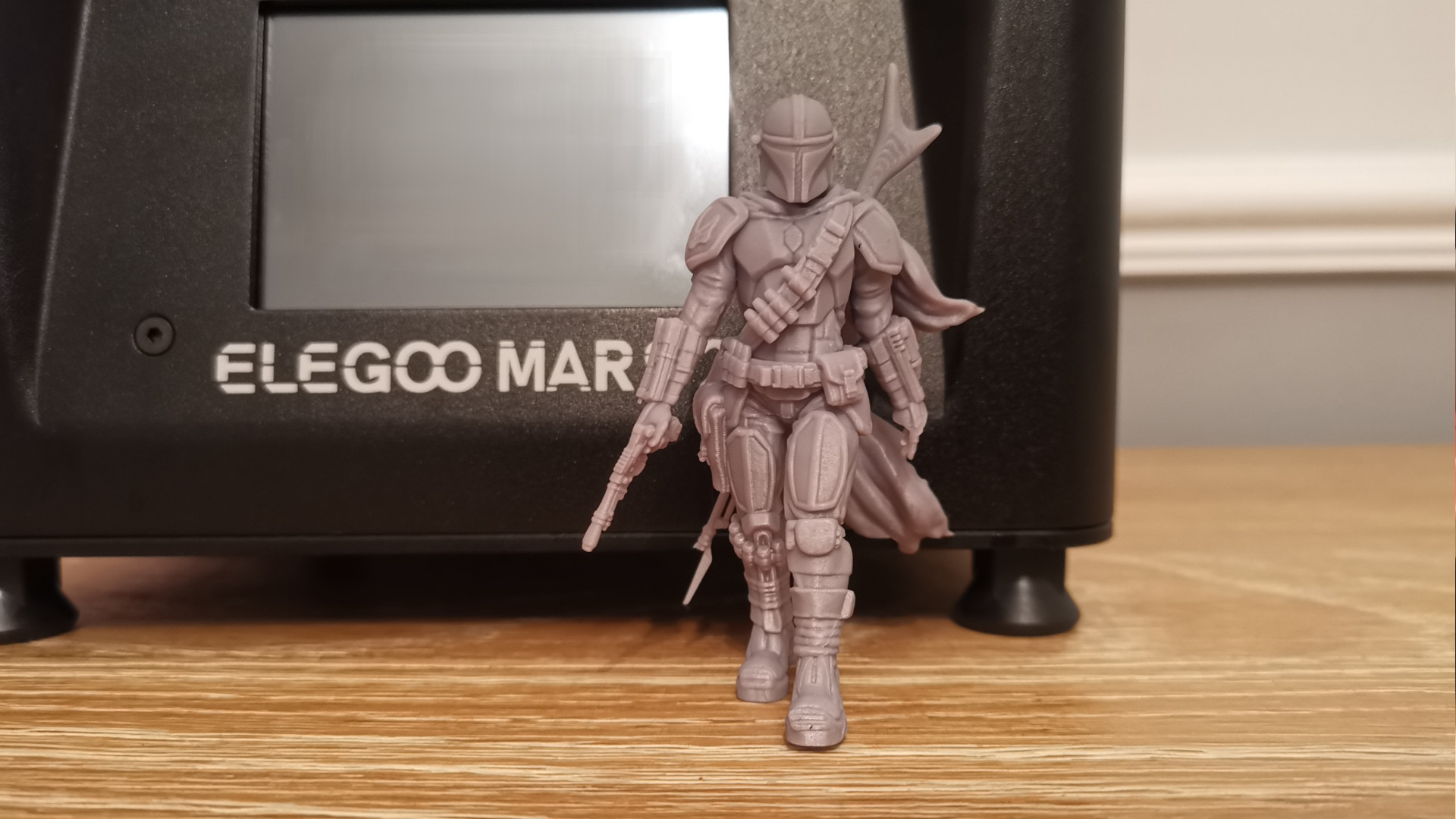
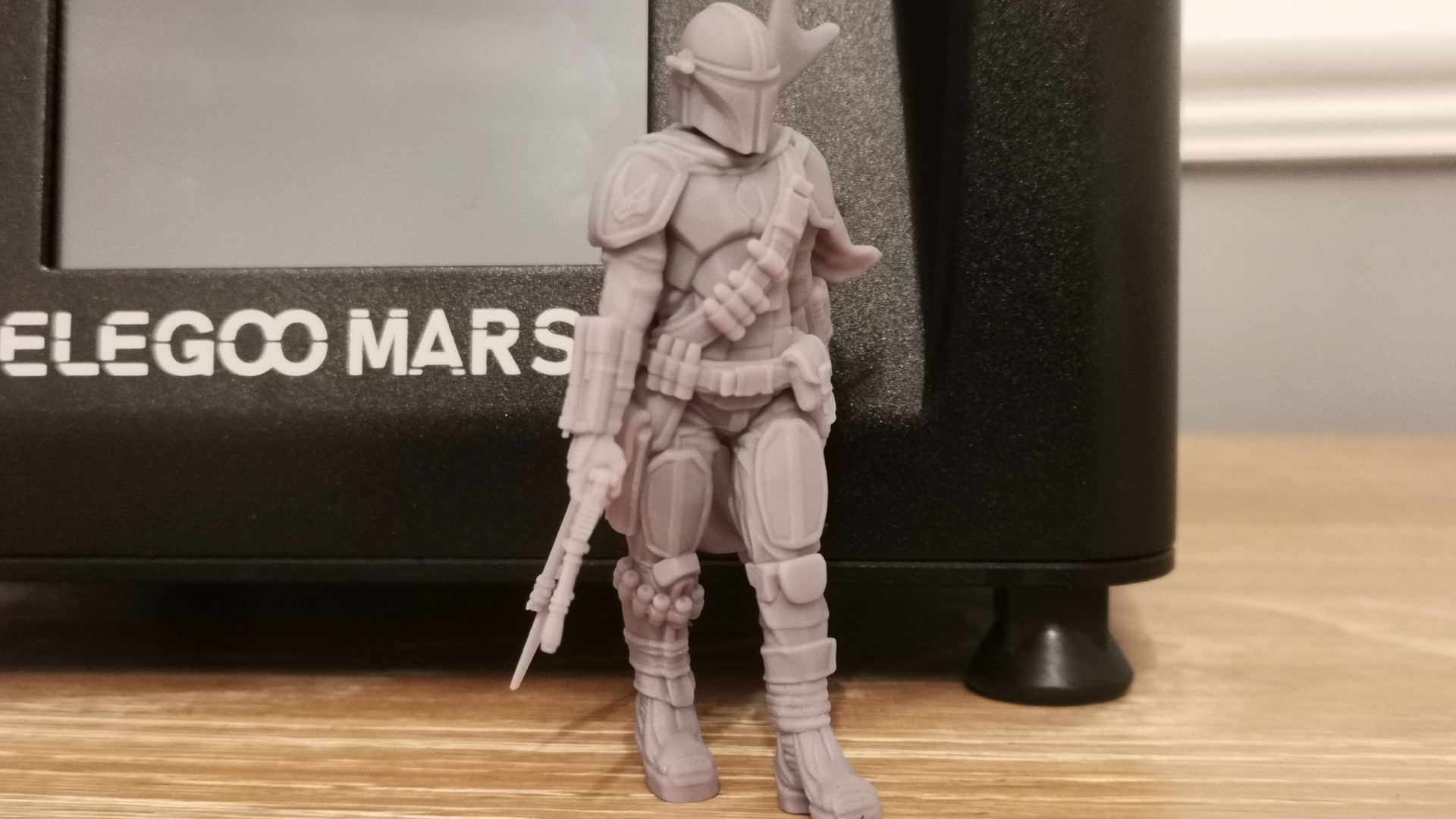
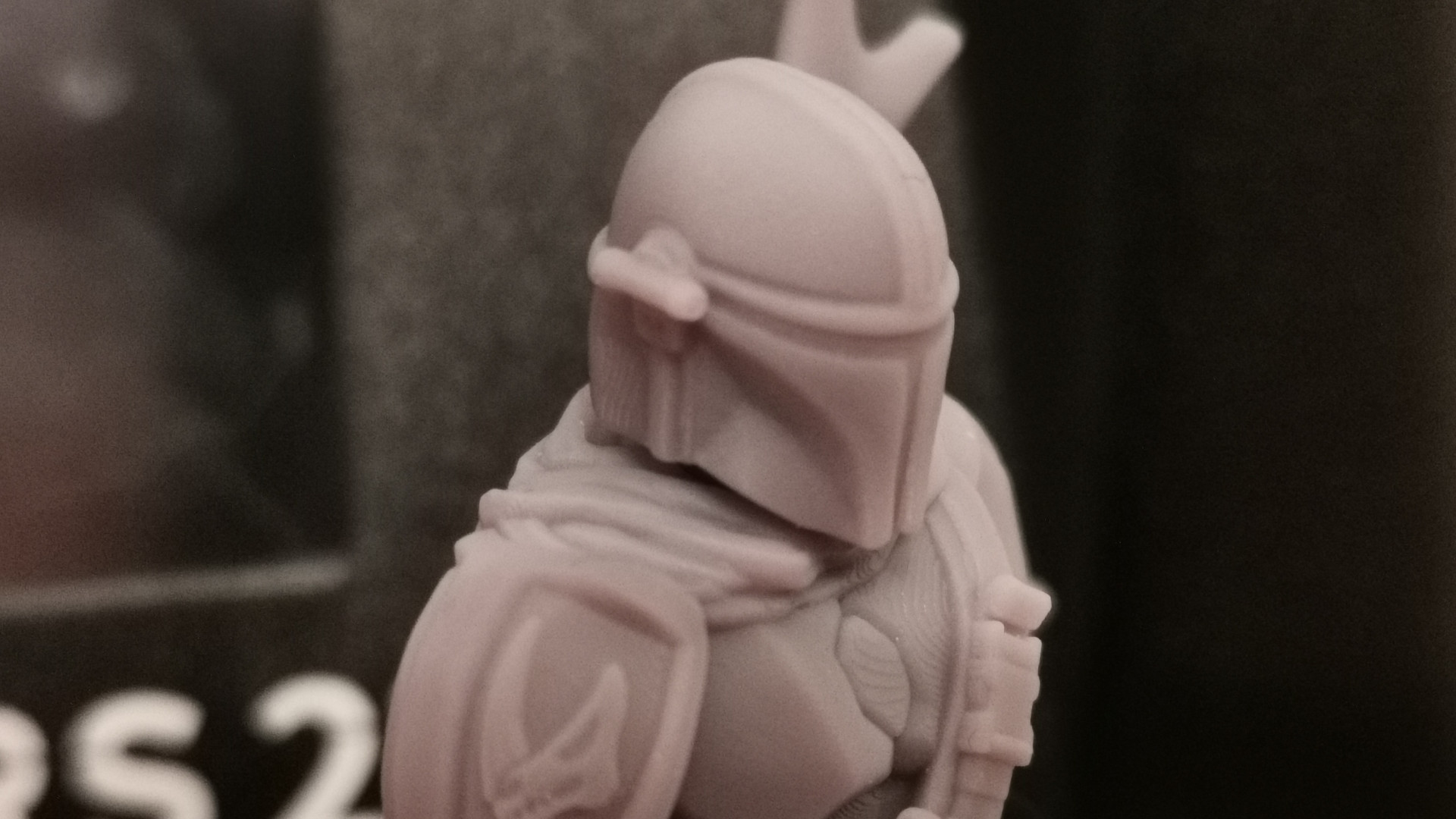
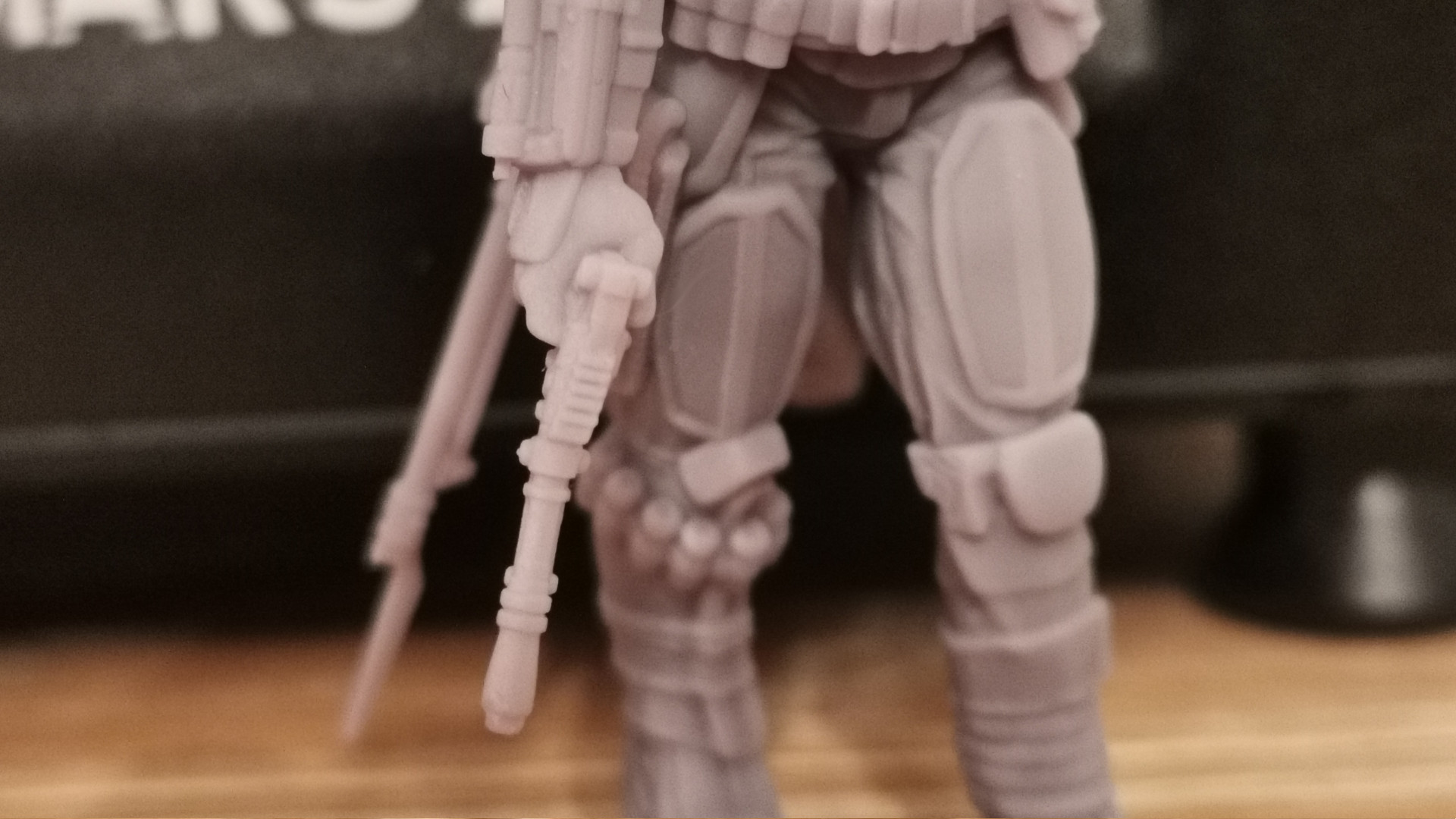
The Grogu figurine that accompanies him on the file sadly failed and adhered to the FEP film, but this was easily rectified by placing a cast-off support onto the print and setting the printer to ‘clean tank.’ This will cure the entire bottom layer of the tank, allowing you to peel it away and remove any sediment that may have sunk to the bottom.
We also found that the NASA website has 3D files available, so we printed a kit that can be built into the Curiosity Rover. Some of the details are so small that we had to use a single grain of rice in order to scale them, and they’re only detectable if you hold the finished print closely to your eyes. This finished printing in just 1 hour and 33 minutes, which is pretty incredible given the quality it can kick out.
These models also printed much faster than other lines in the Elegoo family, such as the Elegoo Saturn, so if you don’t mind the smaller build plate you can churn out batches of prints a day. This is especially useful if you wanted to start a small business selling 3D printed files on websites like Etsy.
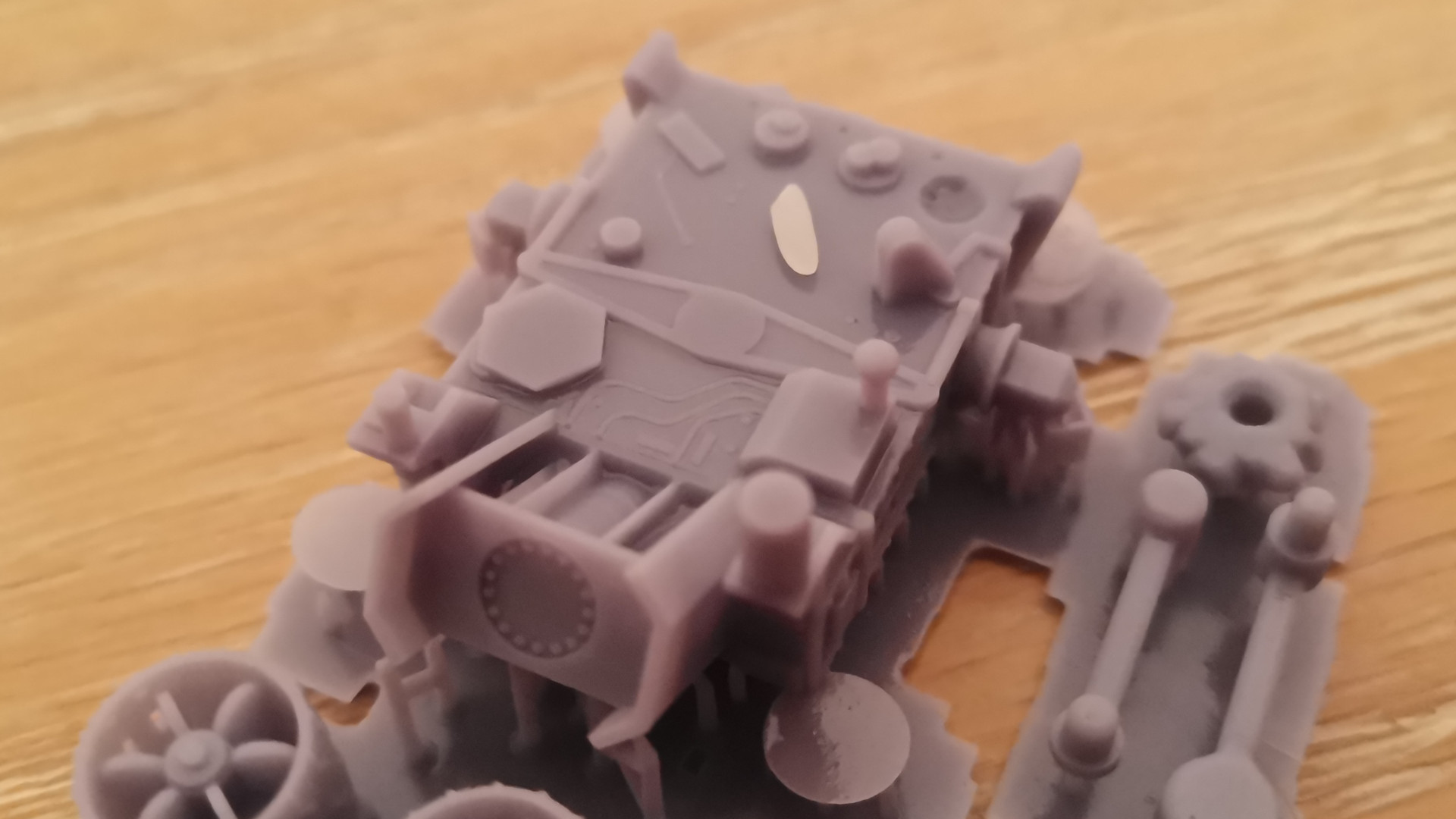
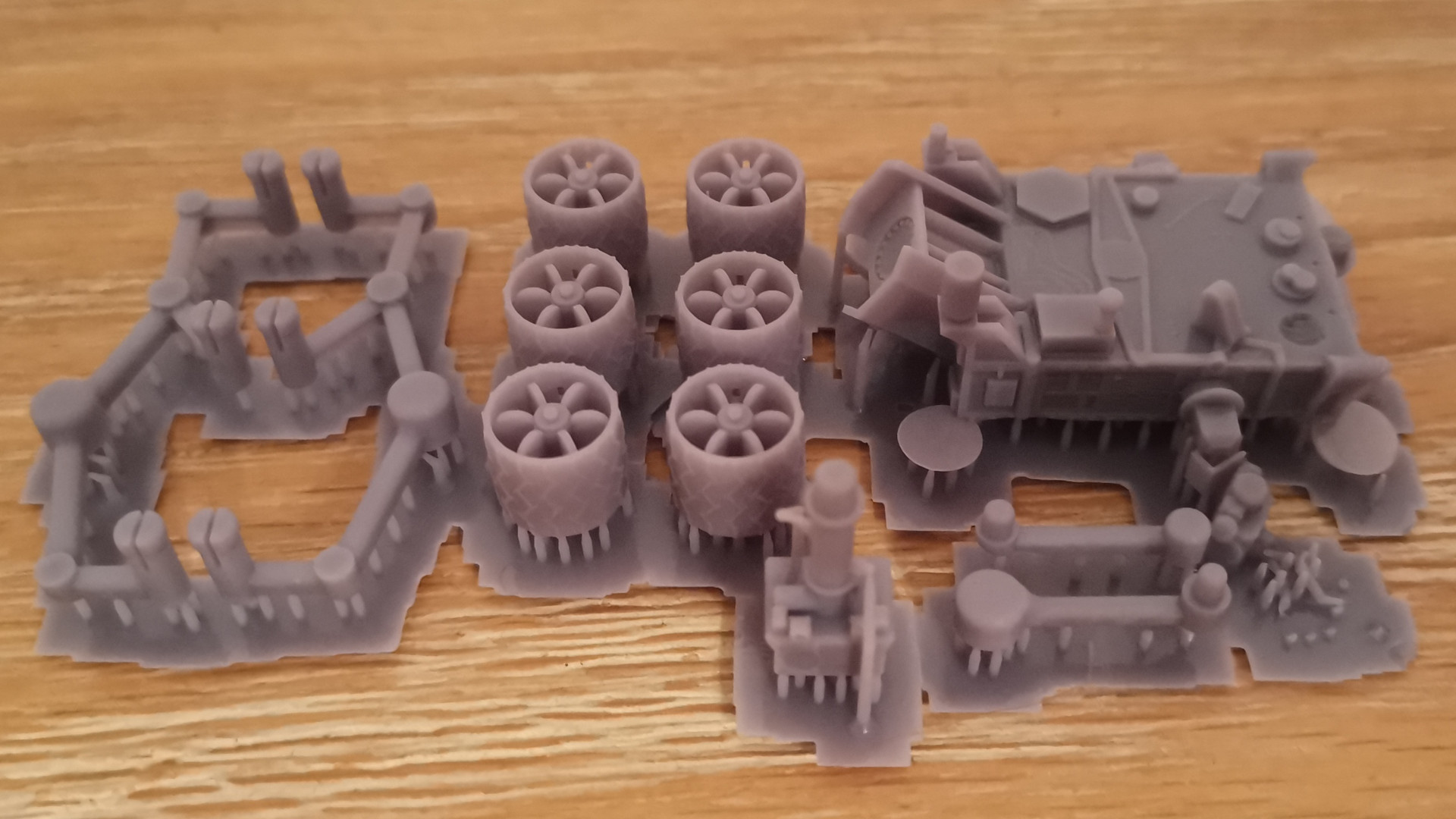
Elegoo Mars 2 Pro review: Price
With printer technology advancing so quickly, you can grab the Elegoo Mars 2 Pro for a relatively affordable $260/£230. That’s not a small sum of cash, but this is on the budget end of things for a consumer-grade resin 3D printer. Plus, we feel that this is more than a fair asking price for the quality you’re getting, especially considering just a few years ago you would be expected to pay significantly more for a printer of the same quality.
It’s not the cheapest machine on the market, but there are similar offerings available if you can’t get your hands on one, such as the AnyCubic Photon Mono. We mention this because stock for the Mars 2 Pro disappears quickly, so you might want to keep an eye on both the Elegoo website, and third-party retailers like Amazon or 3DJake.
Should you buy the Elegoo Mars 2 Pro?
Size isn’t everything, but it will be what dictates if the Elegoo Mars 2 Pro is right for you. It’s not the smallest resin printer on the market by any stretch, but there are larger options available if you don’t mind waiting slightly longer for your models to print. The features included in Mars 2 Pro also make it better suited for keeping in your home as that built-in filter helps to reduce fumes and any unpleasant smells caused by the liquid resin. The rubber seal around the hood needs some work, but it does at least provide great friction to prevent the lid from getting knocked out of place.
If you only want to print tabletop miniatures or figurines for war games then the Elegoo Mars 2 Pro is absolutely perfect for your needs. If you had your eye on creating larger models and don’t want to cut and slice them into batches, then instead opt for something a little larger, but be aware that there’s not much of a difference in quality between Elegoo’s own Mars 2 Pro and Saturn machines.
If this 3D printer isn’t right for you
If you need something for bigger prints, or large volumes, then check out the Elegoo Saturn or AnyCubic Photon Mono X 6K. Both of these are excellent printers that can handle larger pieces, which makes them perfect for printing larger models such as busts and cosplay pieces.

